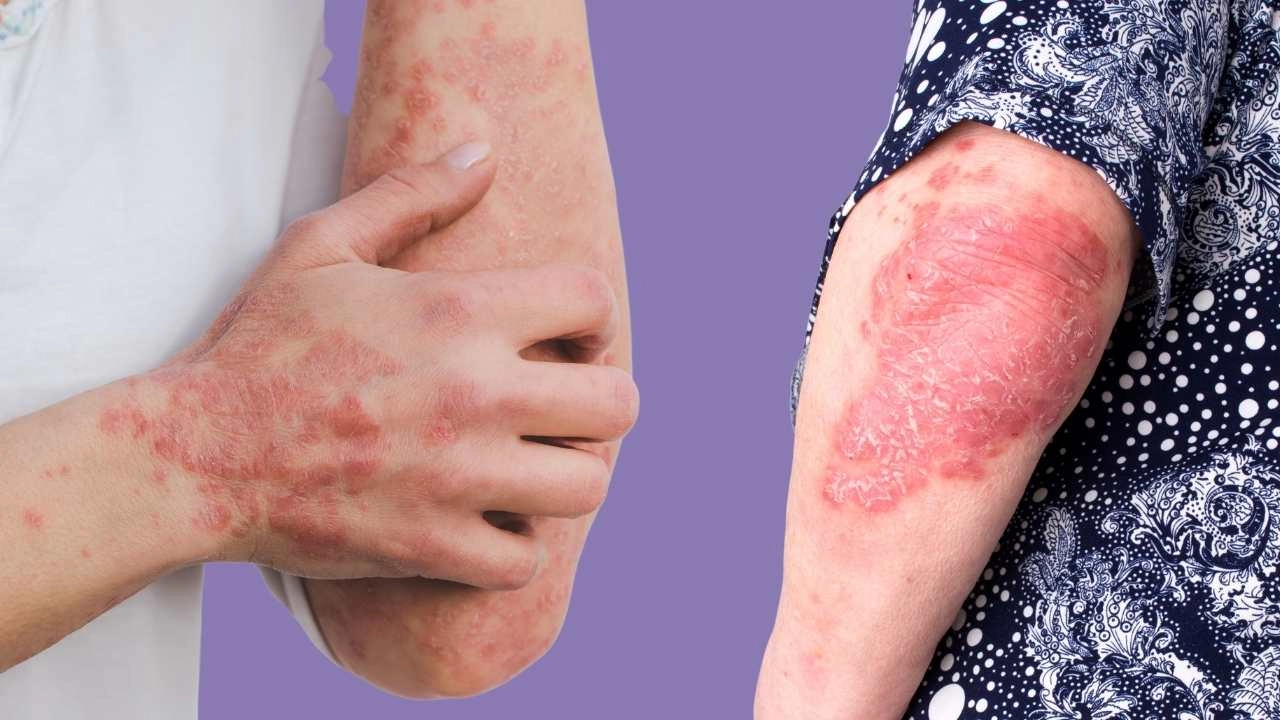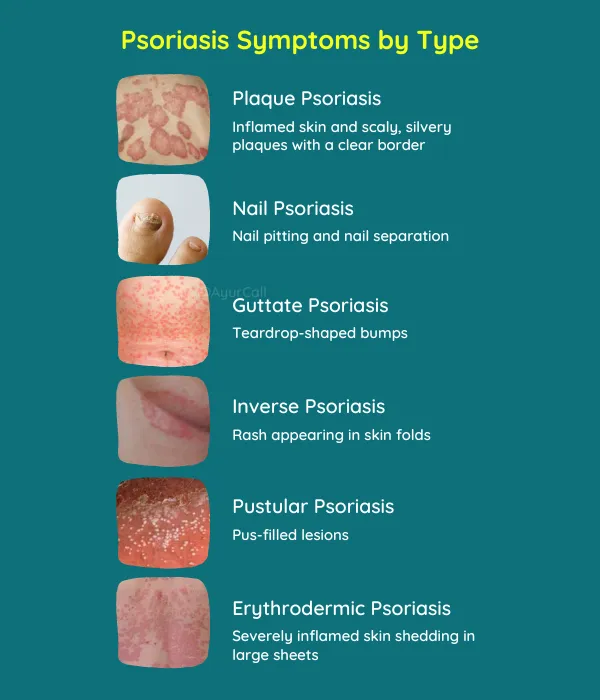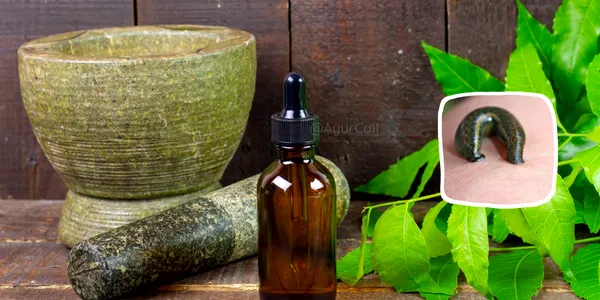
+91 8095511877

+91 8095511877
Psoriasis is an autoimmune disease that affects the skin. More than 125 million people around the world have it. Adults are more likely to have it than kids.

There are effective treatments in Ayurveda for Psoriasis. You will need to be in the hospital for 21-28 days. You may need to repeat the treatment every year for three years for the best results.
We do not know enough about the cause of this disease at this time. As white blood cells, T-cells protect the body from harmful bacteria and viruses. However, if you have Psoriasis, these T-cells start attacking your own healthy skin tissues. They confuse healthy tissues for harmful external elements. While we know that T-cells are the source of the problem, we do not know why they start attacking healthy skin tissues in the same body.
Our bodies constantly replace old skin cells with new ones. Typically, this happens every four weeks. In contrast, psoriasis patients may experience a change in skin cells every two to five days.
These skin cells move to the outermost surface of the skin. Here, they pile up and leave thick and scaly patches on the skin. It also causes the skin to be red and inflamed.
These patches may develop in any location. However, the most common areas are the scalp, knees, elbows, and lower back region. Sometimes, these patches heal and appear again after some time.
There are several types of Psoriasis. The main ones are
Psoriasis symptoms can vary from person to person. They can also vary by the type of Psoriasis. They may even go away completely in many cases. Some of the common signs are


According to Ayurveda, we all have three energy forces inside us called doshas. (Vata, Pitta, and Kapha). If these doshas aren't in balance, they can make people sick. Psoriasis can happen when the Vata and Kapha doshas are out of balance.
Ayurveda lists these points as the leading causes of Psoriasis.
These actions lead to the creation of harmful toxins in the body. When these toxins build up in the body, they cause patches to appear. When Vata is out of balance, the skin becomes dry. An imbalance in Kapha, which is responsible for nourishment and strength, can cause rashes and scales on the skin.

The treatment begins with a complete cleansing of the body through Panchakarma procedures. A few of the most common procedures are Vamana (induced vomiting), Virechana (induced purging), and Rakthamoksham (bloodletting). The next step is to use herbal medicines to balance the doshas and boost the immune system.
Other main procedures include
Snehapana, where you drink medicated ghee for seven days
Takradhara, where medicated buttermilk gets poured over the forehead.
All of these procedures help improve your metabolism and strengthen immunity.
Changes to lifestyle and diet are also a key part of the Ayurvedic treatment plan for Psoriasis. The success of the treatment depends on how much the patient takes part in the process. It is important to do what the doctor tells you to do.
These changes include
It is best to include the following items in your diet
There is no cure for Psoriasis in any medicine. There are three main types of treatment. All of this help control the symptoms.
1. Topical treatments: Applying ointments and creams on the skin can help reduce swelling and itching. Corticosteroids and anthralin are the two most commonly used successful creams. They all have side effects, like making your skin thinner, red, itchy, etc. Using these creams for a long time can even cause skin cancer.
2. Light Therapy: This method uses both sunshine and artificial ultraviolet light. It lets light hit the face for a while. The light kills the white blood cells that cause the spots. But too much light over time can hurt the body.
3. Systemic medications: If the stage is serious or the body doesn't respond to other treatments, the doctor may give oral medicines. These drugs work on the immune system to stop Psoriasis from getting worse. But because these things weaken the immune system, they can also cause diseases and other problems
Some of the best Ayurveda hospitals for Psoriasis are
We can get you a free treatment plan. This will help you choose the right hospital for your case. Please fill up the form and send us these details
Doctors may also ask for images of the affected areas in your body
Frequently Asked Questions
Can Ayurveda permanently cure Psoriasis?
What is the most effective treatment for psoriasis in India?
How long does Ayurveda take to treat Psoriasis?
Treatment Plan for Psoriasis